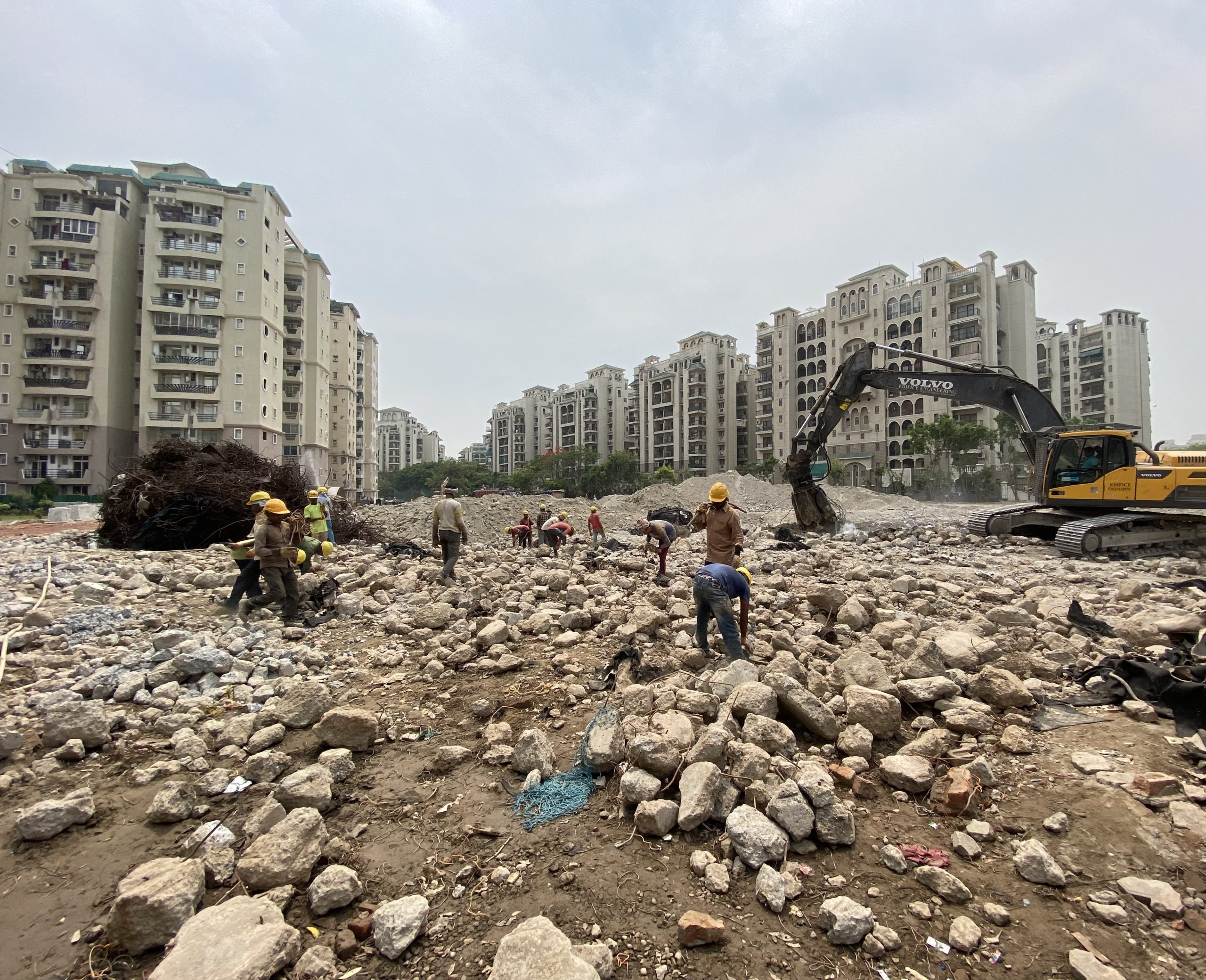This month we continue our series of posts aimed at presenting the most recent research developments of the Lab’s Core Team. We are going to feature all of our researchers, who are working as part of the ERC Inhabiting Radical Housing (IRH) project, the FARE Precarious Housing in Eastern Europe project, or that are pursuing their own individual Marie-Curie or USF fellowships.
We continue with Dr Devra Waldman, a former member of the ERC IRH team.
Devra Waldman was a Postdoctoral Research Fellow before recently joining Florida State University as an Assistant Professor in the fall of 2023. Her research is focused on how interventions around housing act as both drivers and products of both extended urbanization and city building in the National Capital Region of India. Particularly, she is investigating the satellite city of Noida – a place that has been explicitly and continually envision as an urban extension of Delhi, and a solution to a variety of its urban, environmental, and housing crises. Unlike other cities in the Region, Noida has no formal electoral representation, rather, it is controlled by a CEO and board of directors appointed by the State of Uttar Pradesh, despite its roughly 2 million inhabitants. There has been increasing and significant research on extended urbanization, which has excavated how cities extend beyond urban agglomerations intro rural space through capitalist expansion, how peripheries become integrated into the urban fabric of metropolitan centres through industrial production and extractivism, and how these processes transform the environment and sociopolitical formations beyond the boundaries of the city’s limits. However, there has been limited analytical attention to how housing interventions is central to processes of both extended urbanization and city building, especially outside of the contexts of industrial corridors and mine-related developments. In using extended urbanization as a theoretical approach, she aims to show how large-scale housing interventions are intimately related to competing and contradictory imaginations of the urban and housing future.

She conducted a brief first stint of fieldwork in the Spring of 2023, where through participant observation, interviews, and archival analysis of city planning documents, she started to piece together the complex and contradictory evolution of Noida’s housing landscape, its land usage, and the city’s relationship to the (re)production of Delhi. She looks forward to continuing her fieldwork, in 2024, and centering attention to how different groups position themselves in relation to competing ideas of the urban and housing future, and how these positioning facilitate other ways of inhabiting, making, and unmaking the city.
In 2023, Devra published one article on emerging politics of urban enclaving (Progress in Human Geography), and a book chapter on issues of ethnographic vulnterability (Qualitative Researcher Vulnerability: Negotiating, Experiencing, and Embracing).
In 2024, Devra will return to Turin participate in the International Legal Geographies Conference. She also will return to continue to take part in collective study activities during the summer of 2024 and will embark on the next stage of fieldwork on housing and urban extensions in Noida.
Recent publications
Waldman, D., & Ghertner, D. A. (2023). The enclaved body: Crises of personhood and the embodied geographies of urban gating. Progress in Human Geography, 47(2), 280-297. https://doi.org/10.1177/03091325221150792
Waldman, D., Dao, M., Ceron-Anaya, H., & Giardina, M. (2023). Ethnographic Vulnerabilities Power, Politics, and Possibility. In B. Clift, I. Batile, S. Bekker, & K. Chudzikowski (Eds.), Qualitative Researcher Vulnerability: Negotiating, Experiencing and Embracing (pp. 165-185). London: Routledge.
Picture: “Demolitions in Delhi”, Waldman 2023

